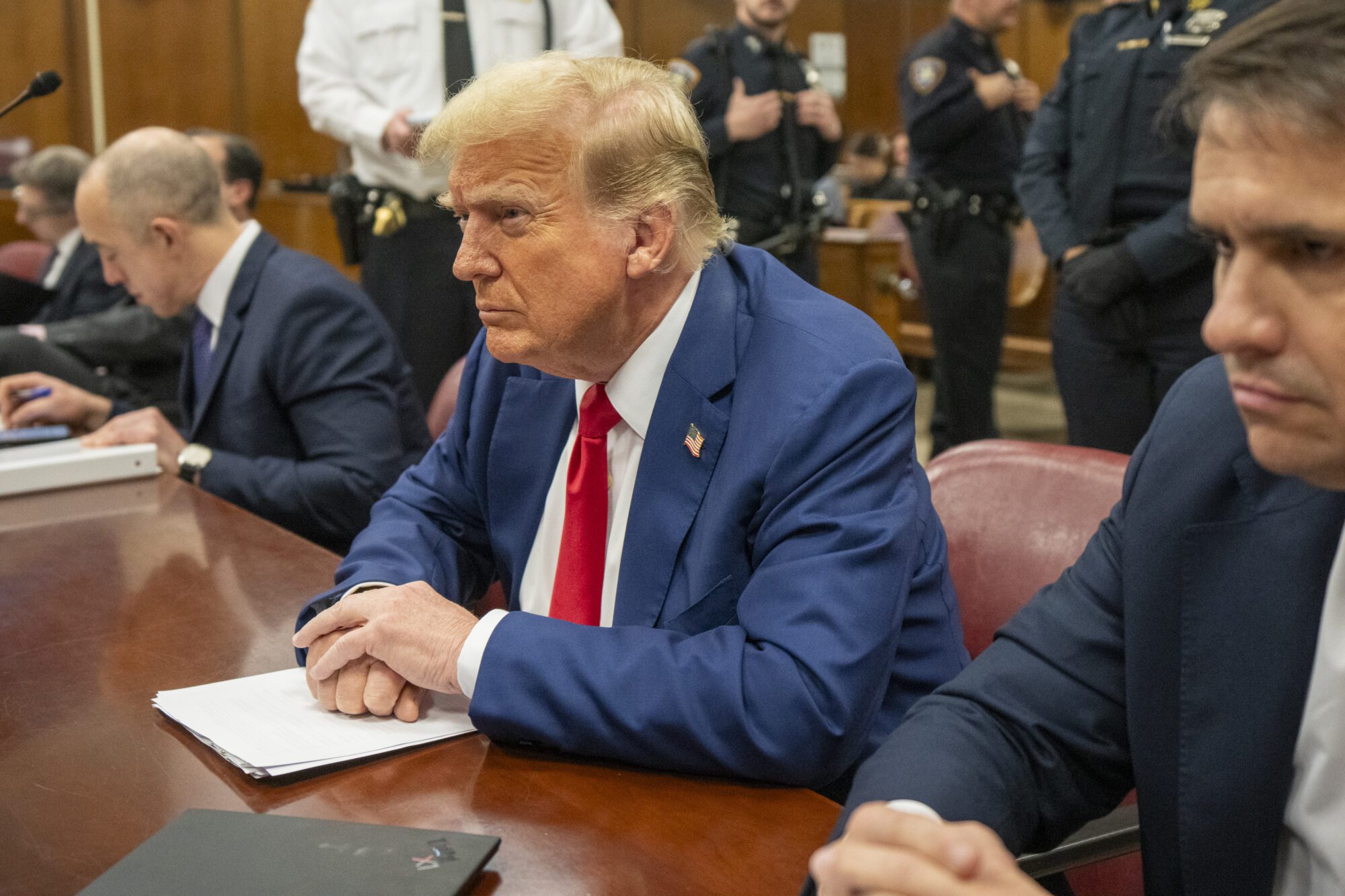But she’s just found a mighty interesting story on Mike Moore in a 1996 edition of the Commercial Appeal.
It’s kinda loooong, but I rather suspect it’ll hold your attention. Twelve years ago, Mike’s future wuz so bright, he hadda wear shades . . .
[excerpts]
The Commercial Appeal (Memphis)
June 15, 1996
Moore loves a crusade; tobacco suit is his latest
Atty. Gen. is a performer
By Reed Branson, The Commercial Appeal
Jackson, Miss., BureauIn the brief interview, Mississippi’s attorney general is a sound-bite machine. He calls tobacco executives liars and killers, fights for the taxpayers and even defends smokers’ rights: ”If they (adults) want to smoke, smoke.”
A modern-day Eliot Ness to admirers, a frenetic show horse to detractors, Moore these days is using the courtroom as well as the camera in a national crusade against a multibillion-dollar tobacco industry that suddenly finds itself on the defensive.
”Without the diligence and tenacity that he’s exhibited, I don’t think we’d be where we are today,” says Scott Ballin with the Coalition on Smoking OR Health, a group of about 200 anti-smoking groups including the American Heart and Lung associations and American Cancer Society.
Less charitably, Peggy Carter, spokesman for R. J. Reynolds Tobacco Co., one of 13 companies named in a Mississippi lawsuit, says, ”It is a relatively safe strategy on behalf of an attorney general or politician to take, because who’s going to criticize you for it?”
Moore’s telephone rings daily with calls from the national broadcast and print newsrooms and, on occasion, from the White House.
”We really have the lead (legal) team in the country and we have more information than anybody in the world,” says Moore, of the collection of private trial lawyers based here that he has working the case. ”It’s funny that little ol’ Mississippi does, that we’re leading this effort, but we planned it that way.”
The tobacco suit is but the latest example of how since 1987 Moore has reshaped the office of attorney general, an elected post in Mississippi, more by force of a hard-charging personality than methodical legal strategy or dramatic courtroom victories.
At times, in fact, his high-risk, rocket-speed style has come close to careering him out of orbit. But, for now at least, polls suggest Moore is perhaps the most popular elected official in Mississippi. He is frequently mentioned as a potential candidate for governor in 1999.
”I also think he’s a viable candidate for United States Attorney General if (President) Clinton gets re-elected,” says Tim Ford, the Democratic speaker of the Mississippi House of Representatives and law school classmate. Moore stood at Clinton’s side when the President vetoed a Republican-passed product liability bill.
On stage, in court, at a press conference, or on a drug raid, Moore is a performer, one the media usually find irresistible.
He once hired a film company to document his filing of a high-profile lawsuit, wears a gun and accompanies police drug busts, and even once appeared on trash-TV king Morton Downey Jr.’s old show to debate white supremacists.
Michael Cameron Moore was born April 3, 1952, to Hugh and Jane Moore, the oldest of five children in a typical, middle-class Catholic family in this Gulf Coast town 20 miles east of the tourist glitz and beaches of Biloxi, Miss.
Moore was a competitive, if not so rebellious, teen: altar boy, good student, Eagle Scout, and ”Most Typical” in his high school annual. ”He was just an average ballplayer, but determination put him on the all-star team,” recalls Hugh Moore, who made his living in the resort real estate business.
His mother recalls Mike, a keyboard player, and his garage rock and roll band marching to the home of a neighbor who had complained to police about the volume. Moore and the band apologized, negotiated practicing hours and befriended the neighbor.
In college, Moore and a band known as The Village Green toured the bars and music venues of universities around the South.
By his own admission, he was but an average student in law school. But he was personally popular, and many of the friendships he forged there played a key role in his political career, including that of fellow prosecutor Jackson and trial lawyer Richard Scruggs, who is handling the tobacco litigation.
Moore worked as an assistant district attorney and briefly in private practice before being elected district attorney in 1979, three years after graduating from law school.
With tips brought to him by an FBI agent, Moore launched an investigation into the spending and purchasing practices of the county Board of Supervisors. Moore won grand jury indictments against four of the five supervisors, but lost the first criminal trial, against Board President Edward Khayat.
”He has a good legal mind. But I wouldn’t say he’s outstanding in that regard,” says attorney Boyce Holleman, who defended one of the supervisors. ”He has boundless energy when he gets into a matter. He goes after it full scale, like . . . tobacco. He stays after it. He has the tenacity of a bulldog.”
In fact, after a conviction against another supervisor, Khayat and the remaining supervisors pleaded guilty to misdemeanors and resigned.
In 1987, Moore defied history. Shedding the Gulf Coast’s swashbuckling, lawless image – as well as his opponents’ campaign commercials showing his long hair from his rock and roll days – he became the first statewide elected official from the region in 60 years.
Moore, standing beside then-governor Ray Mabus, secretary of state Dick Molpus and treasurer Marshall Bennett, was on the cover of The New York Times Magazine article as one of ”The Yuppies of Mississippi: How they took over the Statehouse.”
One Sunday, Moore’s telephone in Jackson rang. Scruggs told Moore to fly to the coast that evening to review boxes of documents turned over by Merrell Williams, a former paralegal with a Kentucky law firm representing Brown and Williamson Tobacco.
“‘The deadwood documents,’ they called their worst ones: we’d have ‘the deadwood’ on them if anybody got them,” says Moore. ”Very shortly after that we flew to Washington . . . and walked them into (anti-tobacco U.S. Rep. Henry) Waxman’s office, and the rest is history. Books have been written about them.”
Richard Daynard, a law professor and chairman of the Boston-based Tobacco Products Liability Project, calls the revelation ”tremendously important . . . Somebody in the industry in 1963 was saying ‘we’re really in the nicotine industry, not the tobacco industry.”’
Tobacco companies, though, say Scruggs rewarded Williams with a house, boat and a job for essentially stealing evidence.
As for his future, Moore calls the United States Senate a longtime dream. U.S. attorney general would be ”an honor,” and private practice appealing.
”I’ve never said, not one time, I wanted to be governor, but I get asked that question every day,” says Moore, who won’t rule out a run.
But Moore relishes the role of crusading cop over chief executive. Over the Christmas holidays, Moore turned back White House inquiries on becoming the nation’s drug czar.
”It’s a Cabinet position. They told me how much it paid – three times more than I make here. I would sit on the Cabinet with the President every week,” says Moore. ”It sounded great.
”But I’m really into what I’m doing with this . . . case. I really like my job here.”
FOLO
6/30/8






